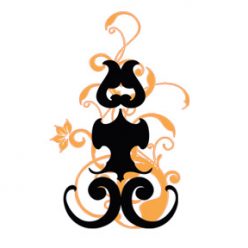
Image via Wikipedia
–guest post by Sujatha Ramakrishna, M.D.
Having a family full of doctors can be such a mixed blessing. Most physicians are aware of the pitfalls of being related to someone who knows way too much about every little ache or cough.
When I was a fourth-year medical student interviewing for residency positions in psychiatry, I met up with the department chair at UT Southwestern in Dallas, whose wife was also a physician. I guess he must have gotten bored with the usual interview questions, or perhaps he took one look at my transcript and decided there was no way was he accepting me into his program, because the discussion took a personal turn.
He asked me what it was like having two physicians for parents, and hinted that certain issues had arisen over the years with his own children. My response was simply, “Well, when I was a kid, and I got sick, they either didn’t care at all … or they totally freaked out.” He just about died laughing at that one. It must have sounded incredibly familiar to him. Perhaps that answer meant that I would have gotten accepted into his program after all.
Now I am a grown-up shrink, and I still have a family full of doctors who provide ample advice, both solicited and unsolicited, for every ailment imaginable.
A few months ago, I got up quickly after sitting in an awkward position on the edge of my couch, and I thought that my right leg was asleep. Well, walking it off, of course, was the solution. Only … whoops! I had foot drop. For those of you who don’t know, this means that when you try to walk your toes drag the ground. Flashback to those med school classes, trying to remember what that meant. Was I having a stroke? A compressed nerve? Hysterical paralysis?
Med school was 20 years ago, as was my last neurology rotation, so of course I had no idea. But I knew that Google would save me … hmm … “damage to the peroneal nerve.” Ok, that sounded reasonable.
But wait, it wasn’t so simple. I also started having twinges under my right seat bone, with radiating pain down the back of my thigh and around to the front of my lower leg. Not good. I had to cancel a trip to Texas, because I had been planning to drive but couldn’t sit for that long.
That’s when all hell broke loose.
My mom the family practitioner called me up, and suggested all sorts of narcotics and muscle relaxants that I could take. She said that if I came down to Texas my sister the radiologist would get me a free MRI. My cousin the orthopedic surgeon asked me if I had back pain, and wanted to know the positional nature of the symptoms.
My aunt the pathologist told me that the real problem was that I needed to acquire more padding on my ass, and suggested having a mojito to get that process started ASAP. As a side note here, one of the really wonderful things about belonging to an Indian family is that you get updates on how much weight you have gained or lost every time you see them, even if the scale says that you haven’t gone up or down 2-3 pounds in the last five years.
My uncle the vascular surgeon, after having a few scotches at that same gathering, started off with a recommendation for a nerve removal, assuring me that yes he had done neurosurgery rotations back in the 1970s (!) and finished with the brilliant idea that a total leg amputation would be a more permanent solution and also earn him more money.
My father the emergency room physician had the most practical advice of all, which was simply, “Don’t drive to Texas.” Words to live by.
Fortunately, another cousin of mine and her husband are physical therapists. I showed them where it hurt, and they immediately said, “Aha! Piriformis!” I said, “What???” We either hadn’t learned about that one in anatomy class, or I had forgotten. More likely than not the latter.
Basically, the problem was a tight muscle which was compressing the nerve. They showed me a stretch that would relieve the tightness — sitting on the floor with my knees bent, crossing the right leg over the left, and using my left hand to pull my right knee towards my left shoulder.
Soon the party at my cousin’s house turned into a mini-yoga class for everyone, which was hilarious but also more therapeutic than any advice that I had received from any of the physicians. I did the stretches that they showed me every morning, and I haven’t had a problem with that nerve since then.
Obviously I am lucky to have such a caring family, and their intentions were nothing but the best. But this story is a great example of how maybe we doctors are too quick to turn to pills, diagnostic equipment, and the knife in every situation. When those things are not indicated, we have few other resources to fall back on.
